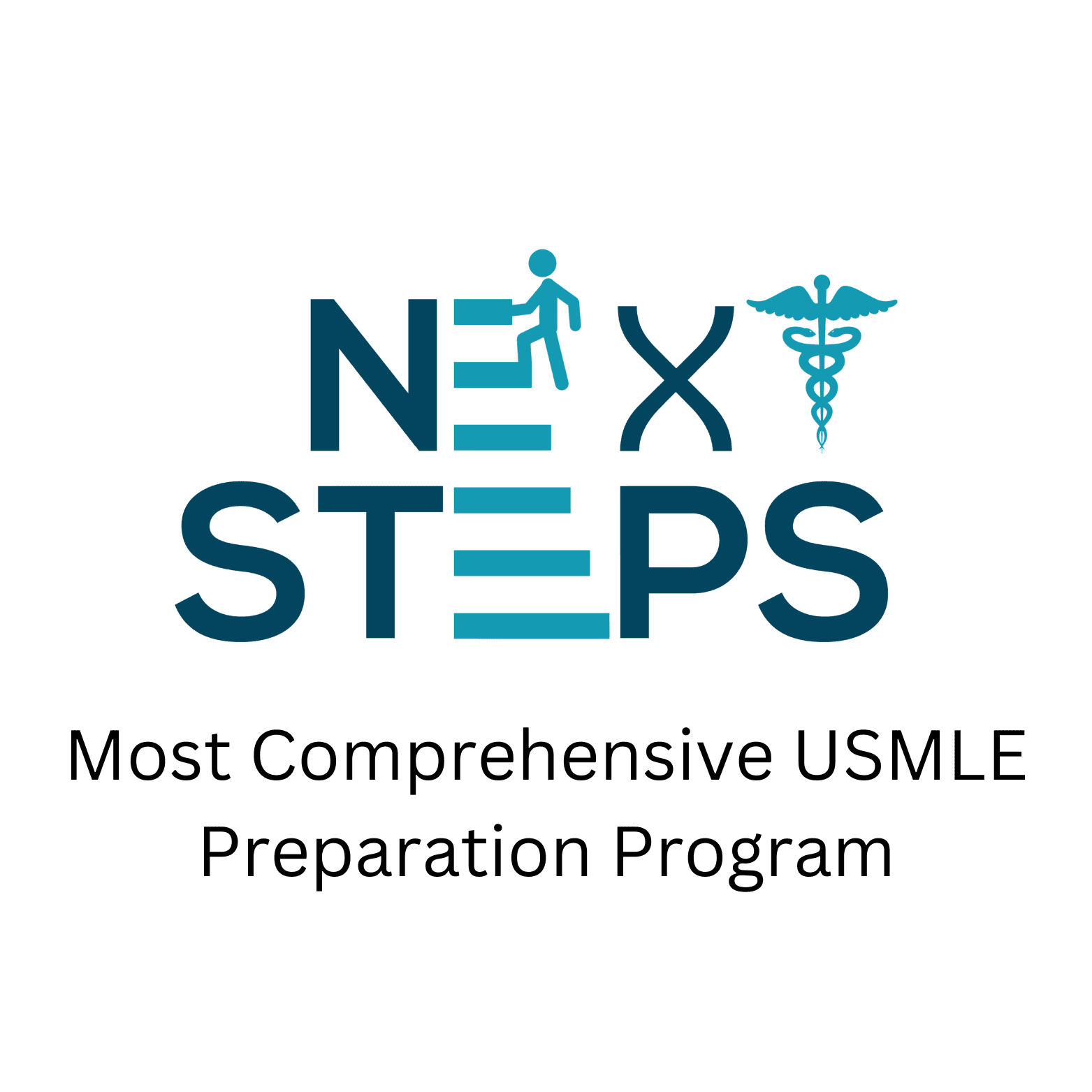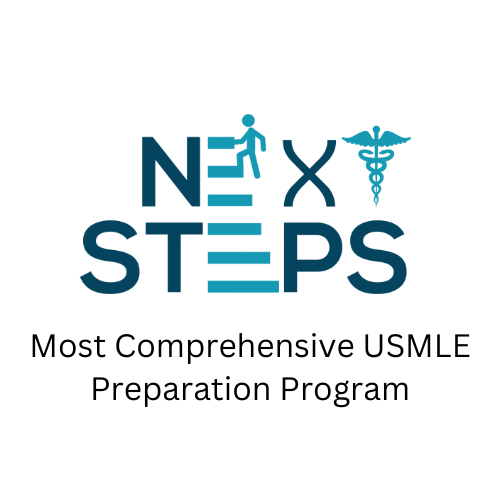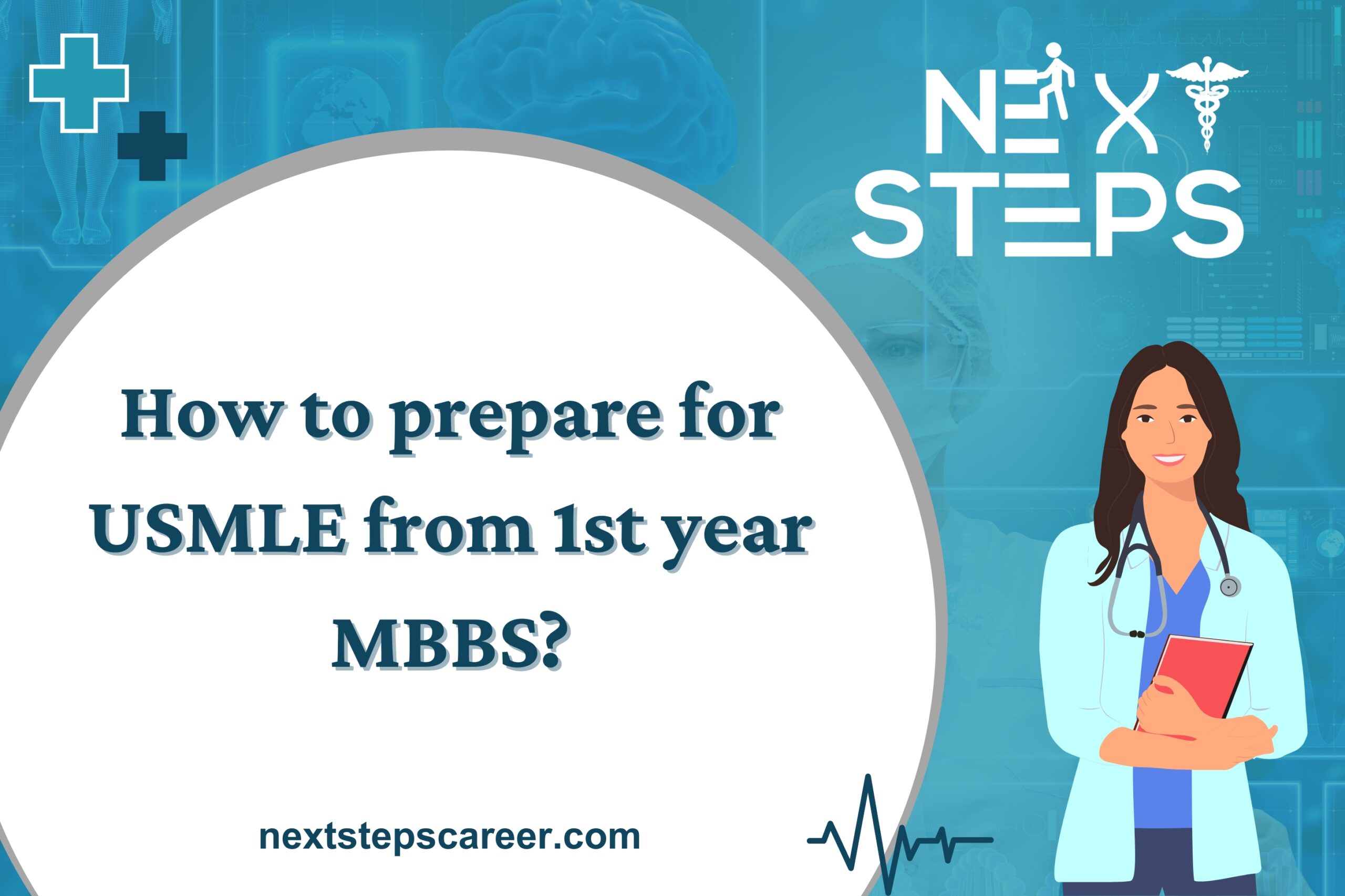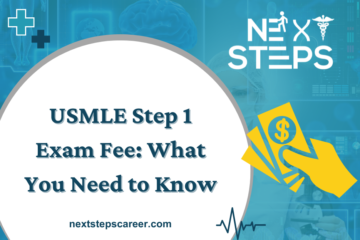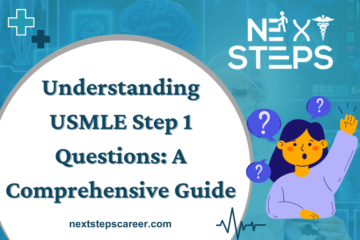How to Prepare for the USMLE from 1st Year MBBS: A Step-by-Step Guide
If you’re an MBBS student with aspirations of practicing medicine in the United States, it’s never too early to start preparing for the United States Medical Licensing Examination (USMLE). The USMLE is a multi-step exam that tests your ability to apply medical knowledge and concepts essential for practicing medicine in the U.S. Starting your USMLE from 1st year of MBBS can give you a head start and a structured approach to success.
In this post, we’ll walk you through a detailed, year-by-year strategy for preparing for the USMLE starting from your first year of MBBS, ensuring you lay a solid foundation without overwhelming yourself.
Why Start USMLE Prep in 1st Year MBBS?
-
- Strong Foundation: The concepts taught during your first and second years of MBBS are critical for USMLE Step 1, which focuses on basic sciences like anatomy, physiology, biochemistry, and pathology. Early preparation allows you to build a strong understanding of these subjects.
-
- Less Stress Later: By starting early, you can break down your study load into manageable chunks, reducing the pressure as you approach the exam.
-
- Long-Term Retention: Spaced learning over time improves long-term retention, helping you retain essential concepts well into your clinical years and for Step 2 CK.
1st Year MBBS: Laying the Foundation
The first year of MBBS is all about building your basic science knowledge, which is the core of USMLE Step 1. Here’s how you can align your first-year studies with USMLE prep:
Focus on Core Subjects
In your first year, your main subjects—anatomy, physiology, and biochemistry—are crucial for the USMLE. Make sure you build a strong foundation in these areas.
-
- Anatomy: Pay close attention to clinical anatomy, as this will be tested heavily on Step 1. Don’t just memorize structures—understand their clinical relevance.
-
- Physiology: This is one of the most high-yield subjects for Step 1. Focus on understanding concepts like homeostasis, organ systems, and mechanisms at a cellular level.
-
- Biochemistry: While biochemistry can seem abstract, it’s important to understand metabolic pathways, enzymes, and molecular biology, as they form a large part of Step 1.
Use USMLE Resources from Day One
While your medical textbooks are essential, supplementing them with USMLE-specific resources will give you a head start:
-
- First Aid for the USMLE Step 1: This is one of the most popular resources among USMLE aspirants. Start using it as a reference guide to highlight high-yield topics.
-
- Qbanks: This is a fantastic resource for visual learners, especially for subjects like microbiology and pharmacology (which you’ll encounter in later years).
-
- Next Steps Mentoring App: If you prefer a more structured study approach, Kaplan’s videos and lecture notes are great for building your understanding of complex topics.
Active Learning Strategies
-
- Question Banks: Even in your first year, it’s beneficial to start solving questions. While you may not understand everything right away, using a question bank like Next Steps will help you learn how to approach USMLE-style questions and improve your critical thinking skills.
-
- Flashcards: Use spaced-repetition apps like Next Steps Mentoring App to build long-term retention of key facts, formulas, and concepts. This is particularly useful for memorizing structures, enzymes, and pathways.
Integrate Learning with Clinical Relevance
From the beginning, try to relate basic science concepts to clinical scenarios. This will help you understand the application of what you are learning and will prepare you for the clinical vignettes on the USMLE.
2nd Year MBBS: Building Momentum
The second year of MBBS introduces more subjects that are essential for Step 1, including pathology, pharmacology, microbiology, immunology, and genetics. This year is critical for reinforcing what you’ve already learned and adding new layers to your knowledge.
Study Smart
-
- Pathology: One of the most high-yield subjects for Step 1. Resources like Pathoma can simplify complex concepts and help you understand key disease mechanisms.
-
- Pharmacology: Focus on understanding drug mechanisms, side effects, and interactions. Flashcards can be incredibly useful for memorizing drugs.
-
- Microbiology: Use visual aids like Next Steps to help retain the vast number of organisms, their characteristics, and the diseases they cause.
Take Practice Exams
By the end of your second year, consider taking practice USMLE exams to gauge your progress. Resources like the NBME practice exams can give you an early sense of what to expect on the actual test and help identify your weak areas.
3rd Year MBBS: Clinical Skills and Step 1 Preparation
During the third year of MBBS, you’ll begin your clinical rotations, which introduce you to real-world medical practice. This is the perfect time to enhance your understanding of clinical subjects and strengthen your Step 1 preparation.
Focus on Clinical Integration
Clinical rotations give you the opportunity to integrate your basic science knowledge into patient care. This is particularly helpful for preparing for Step 2 CK, which tests your clinical knowledge.
-
- Internal Medicine: Since it’s a high-yield subject for both Step 1 and Step 2 CK, pay close attention during this rotation. Understand key disease processes, diagnoses, and treatments.
-
- Surround Yourself with Clinical Vignettes: Step 1 is now increasingly focused on clinical applications. Practice with clinical vignettes that blend basic science with clinical scenarios to hone your skills.
Begin Dedicated Step 1 Preparation
In the later part of the third year, you should start your dedicated Step 1 preparation. This will involve reviewing First Aid, doing daily practice questions from Next Steps Mentoring App, and reinforcing weaker areas.
4th Year MBBS: Final Prep for Step 1 and Moving to Step 2 CK
As you complete your MBBS, your focus should be on final preparation for Step 1 and getting ready for Step 2 CK.
Step 1 Exam
After finishing your dedicated Step 1 prep, take the exam confidently. Your consistent effort from the first year will pay off, giving you a solid foundation to score well.
Start Thinking About Step 2 CK
Step 2 CK focuses on clinical knowledge, which you will have acquired during your rotations. Begin integrating Step 2 CK preparation, using resources like Qbanks, Next Steps Mentoring App.
Final Thoughts
Starting your USMLE from 1st year of MBBS can seem intimidating, but with a consistent and structured approach, it’s entirely achievable. By aligning your medical school studies with USMLE preparation, using high-yield resources, and focusing on clinical relevance, you can set yourself up for success when it comes time to take the exam.
Remember, early preparation is key to avoiding last-minute stress and maximizing your performance on exam day. Stay focused, work hard, and take it step by step—you’ve got this!
